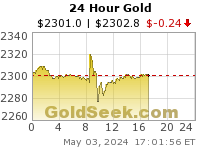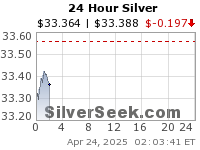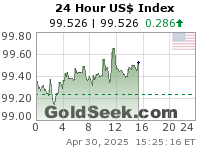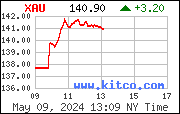 On this page I will be writing down a number of trading tips which might be of use to beginning as well as hardened traders.
On this page I will be writing down a number of trading tips which might be of use to beginning as well as hardened traders.Although the last category of traders should already have mastered these and even practicing them daily they should however not be forgotten.
1. When investing in the stock-market only do so with money you have already said goodbye to. By this I mean that in the worst case scenario if you do happen to loose all your invested money that there will be no bills which can't be paid, no loans which can't be paid off, no mortgage issues, no nothing. When you loose money on the stock market and it effects the normal course of your life then you are breaking rule #1. Remember this.



...
2. Never invest more than 10-15% of your portfolio in any given stock. No matter what the news at the time is. I don't care if your neighbors wife's son in law whose uncle knows a good friend who happens to know the person who works at the local gas station where the CEO of company x fills up his gas tank. Whatever the reason, whatever the motivation. Never ever put more than 10-15% in any given trade.3. Diversify. Don't put all your eggs in one basket. Try to find out the best markets at the time to dedicate your money to. That might be energy, gold, silver, copper, agriculture, oil, uranium,...whatever. Just find out which ones still have plenty upside potential and try to go with the trend. Ask yourself, which sectors might do good in this or that situation.
4. Never enter a trade without having first determined for yourself at which price you're putting your Stoploss if things should turn ugly, at which price you will Enter the stock and what your Exit position will be or rather when you start taking your profits. Stoploss, Entry and Exit or SEE! You SEE?
5. Don't believe everything you read, hear or see. The stock market is not just charts and it is not just emotion. It is sometimes a combination of the two, sometimes just either one and most of the times its something absolutely nobody has any clue about. So basically, always ALSO do your own research and follow your own gut feeling. Oh yeah, if that gut feeling turns out to be costing you more money than it gets you, just try to follow the opposite of your gut feeling each time and you'll do fine.
6.
 Study this highly informational video on youtube made by Stockjockey. Nobody likes a horse beater let alone a dead horse beater. Trust me on that! Don't let it ever get this far. If you did let it get this far then you probably have ignored pretty much most if not all of these rules. Like Stockjockey says, if you have gotten to this level, if you take just 1/10th of all the energy you use into beating that dead horse and use it to become a better trader you'd be far better off. Rule #6 is thus to try to never become the one beating the dead horse.
Study this highly informational video on youtube made by Stockjockey. Nobody likes a horse beater let alone a dead horse beater. Trust me on that! Don't let it ever get this far. If you did let it get this far then you probably have ignored pretty much most if not all of these rules. Like Stockjockey says, if you have gotten to this level, if you take just 1/10th of all the energy you use into beating that dead horse and use it to become a better trader you'd be far better off. Rule #6 is thus to try to never become the one beating the dead horse.7. Try to learn what makes stocks tick, what makes investors tick. That way if you do happen to get that long awaited subscribed newsletter of the stock you're invested in you will know what to do. Sometimes the news will look very good and lo and behold...the stock is dropping faster than apples from trees? Sometimes the news is bad yet lo and behold again...the stock is rising? Try to find out why but now continue with rule #8.
8.
 Don't sell your shares cheaply. Though this rule has some overlap with rule #6, this rule however deals mostly with the events that lead up to the transformation of normal human being to dead horse beater. Most of the times when there is a sell-off everybody tries to get in, you keep lowering and lowering your price until at one moment you discovered that in fact you just have sold all of your shares at a bottom. Most of the times when we're in a rally everybody tries to shift their buy price up and up until they realized they just bought at a top. Don't pay more for your shares then what you were originally planning to pay for them. Either self-inflicted action can and sometimes will result in the dreaded transformation. This brings us right onto rule #9.
Don't sell your shares cheaply. Though this rule has some overlap with rule #6, this rule however deals mostly with the events that lead up to the transformation of normal human being to dead horse beater. Most of the times when there is a sell-off everybody tries to get in, you keep lowering and lowering your price until at one moment you discovered that in fact you just have sold all of your shares at a bottom. Most of the times when we're in a rally everybody tries to shift their buy price up and up until they realized they just bought at a top. Don't pay more for your shares then what you were originally planning to pay for them. Either self-inflicted action can and sometimes will result in the dreaded transformation. This brings us right onto rule #9.9. Sell on UP-days and buy and DOWN-days. I know I know, that's hard but try to master this single aspect of trading. Only break this rule on selling if there is really bad company related news or other non definable event which might have a very negative effect on the price of the stock and only break it on buying when there is really good company related news or other non definable event which might have a very positive effect on the price of the stock.
10. Rule #10 will be to study all above posted rules and understand them until I find the time to write a new rule #10 in which case this rule #10 will become rule #11 and so on and on.
YeOldGoldNugget's links of interest
- New Video: As the Dow Goes, So Goes the Country
- New Video: Has the dollar bottomed out?
- New Video: Crude Oil: Lower Levels Ahead?
- New Video: It’s Official Silly Season for Gold
- What do supertraders have in common
- Two Major Forces Collide in the Index Markets
- What’s Gold’s Next Stop?
- Introducing the Perfect Portfolio
- Free Email Trading Course Copy




![Live 24 hours gold chart [ Kitco Inc. ]](http://www.kitco.com/images/live/gold.gif)






.png)







